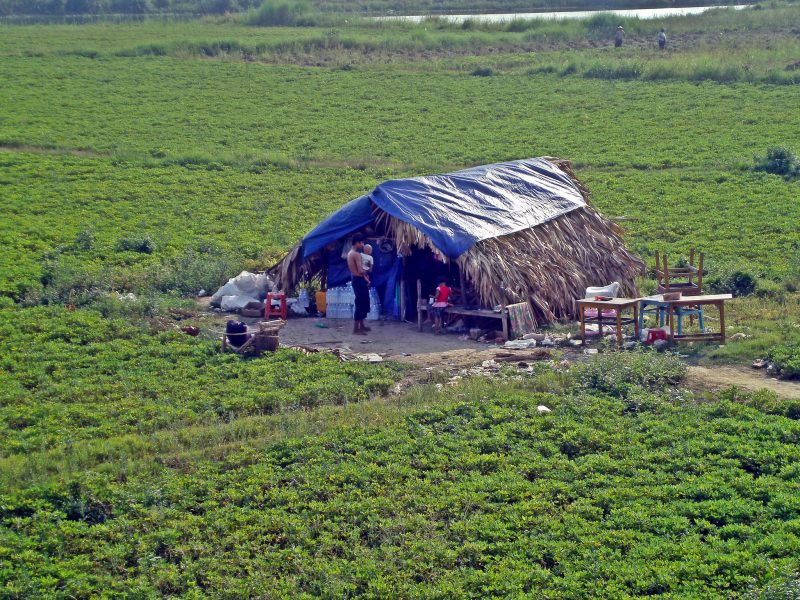Understanding the nature of poverty and food insecurity among rural households is central to designing better policy options. CAPSA thus co-ordinates research to understand better the magnitude, depth and spatial distribution of poverty and food insecurity among rural households. Even as a large volume of research is being carried out on poverty at micro level to document and understand the depth as well as spatial distribution of poverty among agricultural households, further research is needed to understand how policies can be designed to increase the efficacy of poverty reduction efforts, with careful attention to the specific geophysical, socio-economic and political contexts in which such efforts are taking place and their effects on improving capabilities of the poor.
Another area of focus are policies and programmes that target the marginal areas such as arid zones and mountain regions, often inhabited by poor farmers cultivating secondary or indigenous crops with limited irrigation facilities and little or no access to incentives through the existing institutional arrangements. Agricultural risk and risk management strategies among these households is a priority research area given the importance of risk assessment in decision making processes among agricultural households, their impact on long-term growth, and the entry of the poor into agricultural markets.
CAPSA also addresses social protection, focusing on social protection that targets agricultural labourers; agricultural insurance on secondary crops, area-based insurance in marginal lands and vulnerable situations; and welfare programmes targeting agricultural households in marginal areas.
CAPSA intends to review global economic changes that affect agriculture in Asia and the Pacific to understand their implications for the poor and vulnerable groups and provide opportunities for informed debate on these changes. A clear understanding of the extent of poverty in response to economic and political changes will be of immense use for agricultural policy formulation for rural areas of Asia and the Pacific.
Some countries of the region are already paying more attention to sustainable technologies and policies; pockets of success include diversification into high-value crops, organic agriculture and renewable energy. Underlying factors for these successes must be identified and transferred to other regions and to other production options. In particular, technologies and practices for farming systems in use by poor and marginal farmers must be identified. Under this theme, CAPSA, in collaboration with its network of partners co-ordinates activities that result in the identification of best practices for sustainable agriculture in different subregions of Asia and the Pacific, especially subregions and areas characterized by high levels of poverty and food insecurity.
The outcome of this theme will include suggestions for successful adaptation and adoption of ‘what works’ in some subregions into farming systems of other regions in Asia and the Pacific, and will result in better knowledge on available technologies, on the identification of best practices and policy options that support sustainable production technologies, and focus on policy design that enables increasing productivity with inputs available to farmers in marginal and remote areas.
Building the capacity of economies to produce, access and distribute safe and diversified food is an integral element of food security. Under this theme, CAPSA, in collaboration with its network of partners, co-ordinates activities that result in better knowledge and understanding of markets, their constraints and opportunities in the region. Emphasis is given to policy options for rural infrastructure, market access, and approaches to strengthen diversification, post-harvest and processing systems for food crops, and value addition. This includes areas such as innovative financing mechanisms to support market infrastructure, to secure legal frameworks, and to gain access to financial and legal services.
Research under this theme will contribute to better understanding of constraints and opportunities for small-scale producers and traders within markets for agricultural products and will provide a synthesis of market innovation options, beneficial policy changes, and other support mechanisms. Focus under this theme will be on research related to global regimes for trade in agricultural products and their impact on poor agricultural households. The need for further research arises due to the fact that the global trade regime in agricultural products is highly distorted and that dynamics in the global market have a major bearing on smallholder agriculture and poverty among the poorest segments of society.
This theme will contribute to the debate about the future direction of change in the agro-food sector; to the connection between food supply chains and sustainable rural development; and to formulating policy recommendations to help overcome the bottlenecks constraints that inhibit development of the market for more sustainable farm products. It is expected that this will result in enhanced capacity on the part of policymakers and senior government officials to design and implement policies for more efficient and equitable markets that allow for the provision of safe food, advance rural development, reduce poverty and ensure food security.
